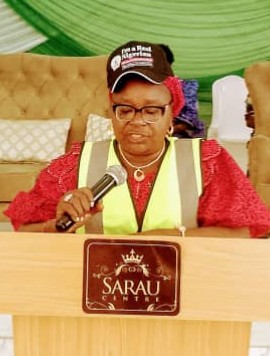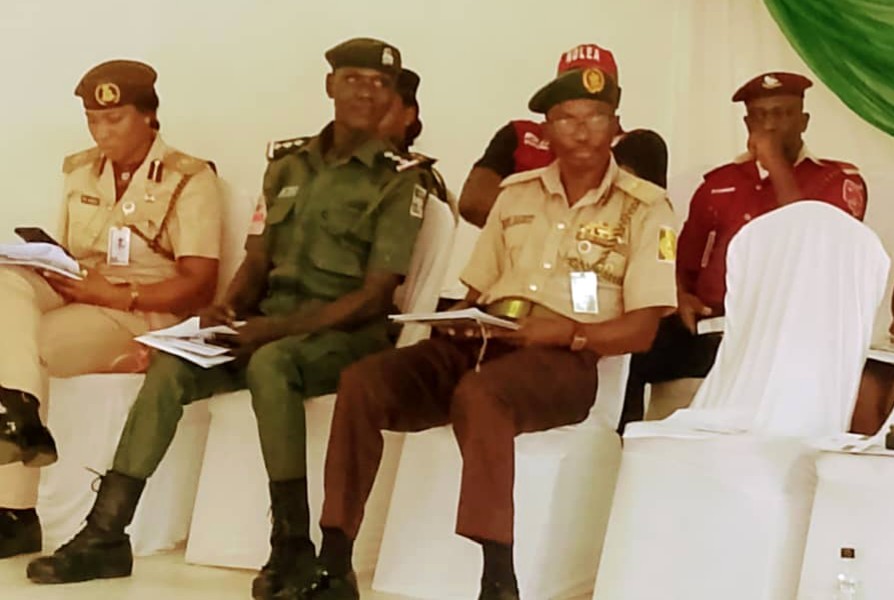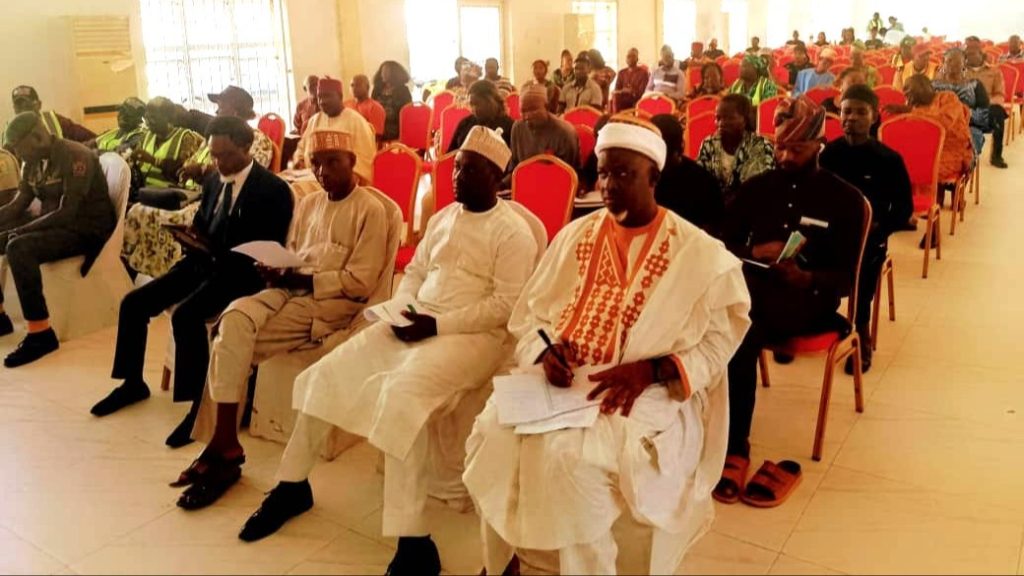Our reporter
The significance of the National Anthem and the National Values Charter dominated discussions at a one-day stakeholders’ engagement held in Jos, organised by the National Orientation Agency as part of an ongoing nationwide sensitization campaign on these issues.
At the event held at the Sarau Event Centre in Jos, participants were sensitized on the significance of these vital elements of Nigeria’s national identity.
In her welcome address, Plateau State Director of the National Orientation Agency, Mrs Kaneng Pam-Hworo, said the campaign was aimed at creating awareness, understanding, and appreciation of these vital elements of the nation’s identity, adding that it was an event for stakeholders to decide on which way to go as Nigerians.

She said, “We are here because we want to make a turnaround. We are here because we want to encourage ourselves by ourselves. There is no doubt that our nation is passing through a lot of challenges created by our misdeeds and inactions as leaders and followers alike.
“These actions have resulted in a systemic rot, occasioned by the eroding of our cherished national values, thus giving rise to all forms of social vices. Therefore, we are here to find a solution to our ailing system.”
According to the State NOA Director, the National Anthem is “more than just words or melody” and carries what she termed “the spirit of our Nation,” reminding us of our values, history, and aspirations as a nation.”
She disclosed that the NOA as an agency of government was out to fashion a way forward in making Nigerians take pride in their nation.
Speaking on the significance of the National Anthem, Mrs Pam-Hworo explained that it represents National unity as it unites the citizens across tribes, tongues and religious divides, evokes a feeling of pride and patriotism and gives a sense of belonging as a people.
Mrs Pam-Hworo emphasized that in a world that was increasingly divided by differences, hence, the National Anthem calls for Nigerians to rise above these divisions and work towards a common goal.

“It inspires us to be responsible citizens, reminding us of our shared destiny as a nation.”
On the National Values Charter, which is a document that outlined the ethical principles Nigeria must uphold as a sovereign society, the NOA Director posited that the document serves as a framework for “our behaviour, guiding us in our interactions with one another.
Highlighting some portions of the National Values Charter, Mrs Pam-Hworo said “The Charter emphasizes values such as integrity, accountability, respect for Human Rights and national unity.
“The National Values Charter is not just a set of guidelines; it is a call for all Nigerians. It encourages us to reflect on our actions and consider how we can contribute positively to our communities by aligning our behaviour with these values, we create an environment where everyone can thrive” she stated.
Delivering a keynote address, a civil society activist, Gad Shamaki tasked Nigerians on the need to discard all forms of primordial sentiments and focus attention on national values that work for all citizens.
Shamaki posited that the current realities concerning equality, good governance, accountability, peace and security as far as the Nigerian project is concerned are a mirage.
According to him, the plurality crisis facing Nigeria and the disconnection by the generality of Nigeria is not just an abstract concept but manifests itself in the daily interactions of the citizens adding that ethnic, religious, and regional divisions have clouded the vision of a united Nigeria, making it difficult to forge a cohesive national identity. This, he posited had, in turn, weakened the moral foundation upon which our values are built.
On navigating the National Value Charter (NVC), Shamaki explained that the National Values Charter captures the social bond that guides the relationships between the Nigerian people and the state, in its entirety.
Said he: “The National Values Charter is divided into two critical segments: The Nigerian Promise and The Citizen’s Code, tagged as 7 For 7. The Nigerian Promise, which is the first segment, comprises seven critical responsibilities of the government and its officials. These seven core commitments are Equality, Democracy, Entrepreneurship and Employment, Peace and Security, Inclusivity, Freedom and Justice and Meritocracy.
“These commitments are not mere ideals, but commitments that our leaders must fulfil to restore trust and ensure that every Nigerian, regardless of their background, has an equal opportunity to thrive.

On the way forward, Shamaki posited that the challenges facing Nigeria were not insurmountable, hence addressing them requires “deliberate and intentional efforts from every Nigerian” emphasizing that Nigerians must recognise that our strength lies in our diversity.
“Our different cultures, languages, and traditions are not obstacles to unity, but assets that, when embraced, can make us stronger. We must reject the notion that diversity breeds division and instead see it as a source of innovation, resilience, and growth.
“The National Values Charter provides the framework for this transformation, but it is up to us—leaders and citizens alike—to breathe life into it.
“Let us recommit to the values that will unite us, hold our leaders accountable to the promises they have made, and fulfil our obligations as citizens. Through discipline, tolerance, transparency, and care for one another, we can redefine what it means to be Nigerian and build a nation where everyone has a sense of belonging.” The one-day event featured question and answer sessions as well as goodwill remarks from the Plateau State Traditional Council of Chiefs, the State Ministry of Information and Communication, the Ministry of Education, the Head of Civil Service, faith-based organisations and the Civil Society
